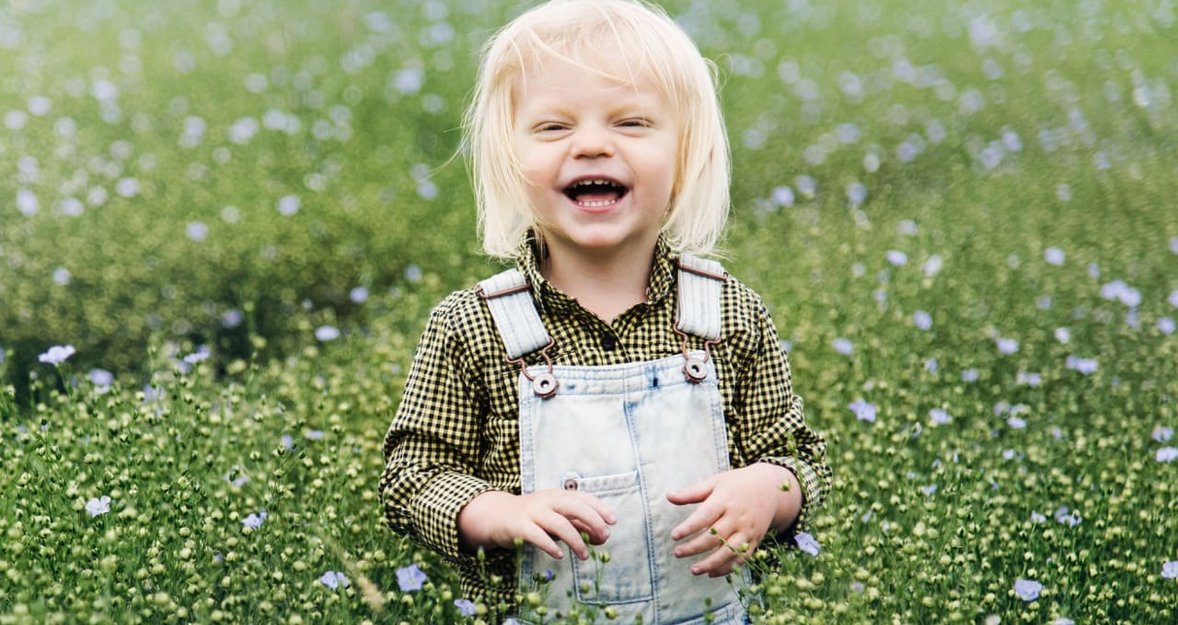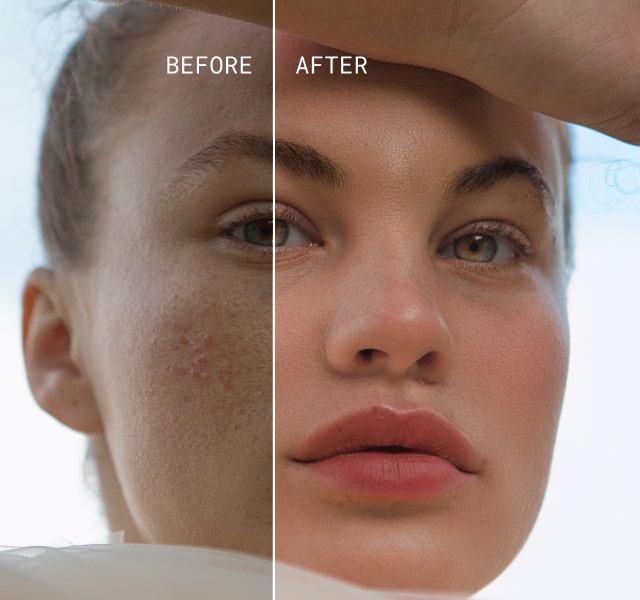Features Of Children Portrait Photography: Techniques And Tips
May 12, 2025

Children grow up fast, and capturing their sweet, silly, and honest moments is priceless. That’s where children’s portrait photography comes in.
It’s not just about getting a cute smile—it’s about freezing genuine moments that tell a story. But let’s be honest: kids don’t always sit still, and they often don’t follow directions. That’s why photographing children can be tricky yet incredibly rewarding.
Whether you’re a beginner or someone looking to improve your photography game, this guide covers the key features, techniques, and tips you need to get natural, beautiful portraits of kids.
Less Time Editing, More Time Creating
Try Aperty NowWhat Makes Children’s Portraits So Special?
 Children are spontaneous. They don’t fake emotions the way adults sometimes do in front of a camera. This is what makes their portraits feel raw, playful, and full of life. Every giggle, pout, and side glance tells a little story.
Children are spontaneous. They don’t fake emotions the way adults sometimes do in front of a camera. This is what makes their portraits feel raw, playful, and full of life. Every giggle, pout, and side glance tells a little story.
Their small size, quick movements, and expressive faces create both challenges and opportunities. The goal isn’t always perfection—it’s capturing personality, mood, and emotion in an honest way.
Also, kids live in the present. When they laugh, it’s real. When they’re curious, you can see it in their eyes. This authenticity is what makes child portraits so timeless.
You may also like: Children's Portrait Photography: A Comprehensive Guide
Quick Tips on Photographing Children
 Here’s a handy list of quick tips on photographing children to keep in mind:
Here’s a handy list of quick tips on photographing children to keep in mind:
1. Scout the location—choose spots with soft, natural light and clean, simple backgrounds. And always have a backup plan in case the original location doesn’t work out. Flexibility is key.
2. Set expectations with parents—let them know the session will be playful and possibly short. It also helps to show the child (and parents) a few shots during the session to build trust and keep the mood relaxed.
3. Children are full of energy—always keep your camera ready. The best moments happen fast, and you don’t want to miss them while adjusting your settings.
4. Dress smart—simple, solid-colored outfits help keep the focus on the child’s face. Use fun props or make silly sounds to get their attention and spark genuine smiles.
5. Keep it short—30 to 45 minutes is usually enough for younger kids. Try to schedule the session when the child is well-rested and has eaten. Happy kids = smooth session.
6. Bring snacks, water, and plan for little breaks. If the child gets tired or distracted, a short pause can help everyone reset and return to the shoot in a better mood.
Techniques That Work With Kids
 Taking great pictures of children requires more than technical skills. You need patience, creativity, and flexibility.
Taking great pictures of children requires more than technical skills. You need patience, creativity, and flexibility.
1. Get on Their Level
Literally. Kneel or sit on the ground. This makes kids feel more comfortable and creates more engaging portraits. Eye-level shots help the viewer connect better with the child in the image.
2. Use Continuous Shooting Mode
Kids move a lot. Set your camera to burst mode to catch the perfect moment in between the chaos. You might take 50 photos and love 3, but those three could be gold.
3. Capture Candid Moments
Forget stiff, posed portraits—the magic often lives in the in-between moments. The giggles, the glances, the deep-in-thought stares. Kids are naturally expressive, and your job is to create space for those emotions to shine through.
Make it a game. Play peek-a-boo behind the camera, make silly sounds, or start a round of “Simon Says.” When kids are having fun, the smiles come naturally—and so do the best shots.
Talk with them. Instead of giving instructions, start a conversation. Ask about their favorite cartoon, their pet’s name, or what they had for breakfast. Their answers might surprise you, and their reactions will be golden.
Let them move. Running, spinning, jumping — movement releases nervous energy and makes the session feel more like play than posing. You’ll capture energy, joy, and real connection.
You can also ask them to whisper a secret, shout their name, or count backwards. These little prompts turn into big reactions—and some of your most memorable photos.
4. Focus on the Eyes
The eyes are the windows to the soul. Make sure they’re sharp, especially in close-up portraits. If you’re using autofocus, choose a single-point focus and place it on one eye.
5. Let Them Be Themselves
Don’t force poses. Let the child’s personality come through. Some may be shy, others wild—both are beautiful.
Create More, Edit Less – Let AI Handle the Details
Try Aperty NowCreative Composition Ideas
 Once you understand the basics, it’s time to get creative. Here are some ideas to help you level up.
Once you understand the basics, it’s time to get creative. Here are some ideas to help you level up.
Use Negative Space
Leaving space around the child can create calm, thoughtful images. It also works well for adding text if the photo is for invitations or cards.
Include Props, But Don’t Overdo It
A favorite toy, a storybook, or even bubbles can help kids relax. Keep it simple so it doesn’t steal attention from the child.
Try Different Angles
Shoot from above, below, or even behind for a more dynamic perspective. Just make sure the child is still the focus. A low angle can also make them appear larger than life and full of wonder.
Frame Within a Frame
Use doorways, windows, or even a parent’s arms to create a natural frame around the child. It draws attention and adds visual interest.
Natural Lighting Tips
 Lighting makes or breaks a photo. Natural light works wonders, especially for kids.
Lighting makes or breaks a photo. Natural light works wonders, especially for kids.
Golden hour: Early morning or just before sunset gives warm, soft light.
Cloudy days: Clouds act as a giant diffuser. No squinting, no harsh shadows.
Window light: Indoors, position the child near a window with soft, indirect light.
One of the best child photography tips is to avoid using flash unless absolutely necessary. It can startle kids and cause red eyes or harsh shadows. Use reflectors instead to bounce light where you need it.
Post-Processing Magic
 Editing helps turn a good photo into a great one. But with children, the goal is to enhance, not overdo. Use a portrait photo editor that keeps skin tones natural while smoothing minor blemishes. Light adjustments to brightness, contrast, and warmth can go a long way. Avoid heavy filters—they can take away from the authenticity of the moment.
Editing helps turn a good photo into a great one. But with children, the goal is to enhance, not overdo. Use a portrait photo editor that keeps skin tones natural while smoothing minor blemishes. Light adjustments to brightness, contrast, and warmth can go a long way. Avoid heavy filters—they can take away from the authenticity of the moment.
Keep it simple and real. Let freckles show. Let messy hair be part of the story. That’s what makes childhood photos memorable.
Less Time Editing, More Time Creating
Try Aperty NowFinal Say
 Photographing kids isn’t always smooth sailing—but it’s worth it. It’s not just about knowing how to take nice portrait photos. It’s about being in the moment, going with their energy, and having fun together.
Photographing kids isn’t always smooth sailing—but it’s worth it. It’s not just about knowing how to take nice portrait photos. It’s about being in the moment, going with their energy, and having fun together.
You’re not just snapping a picture—you’re catching a laugh, a curious look, a little slice of who they are right now. So take a deep breath, crouch, and let the real magic happen.
